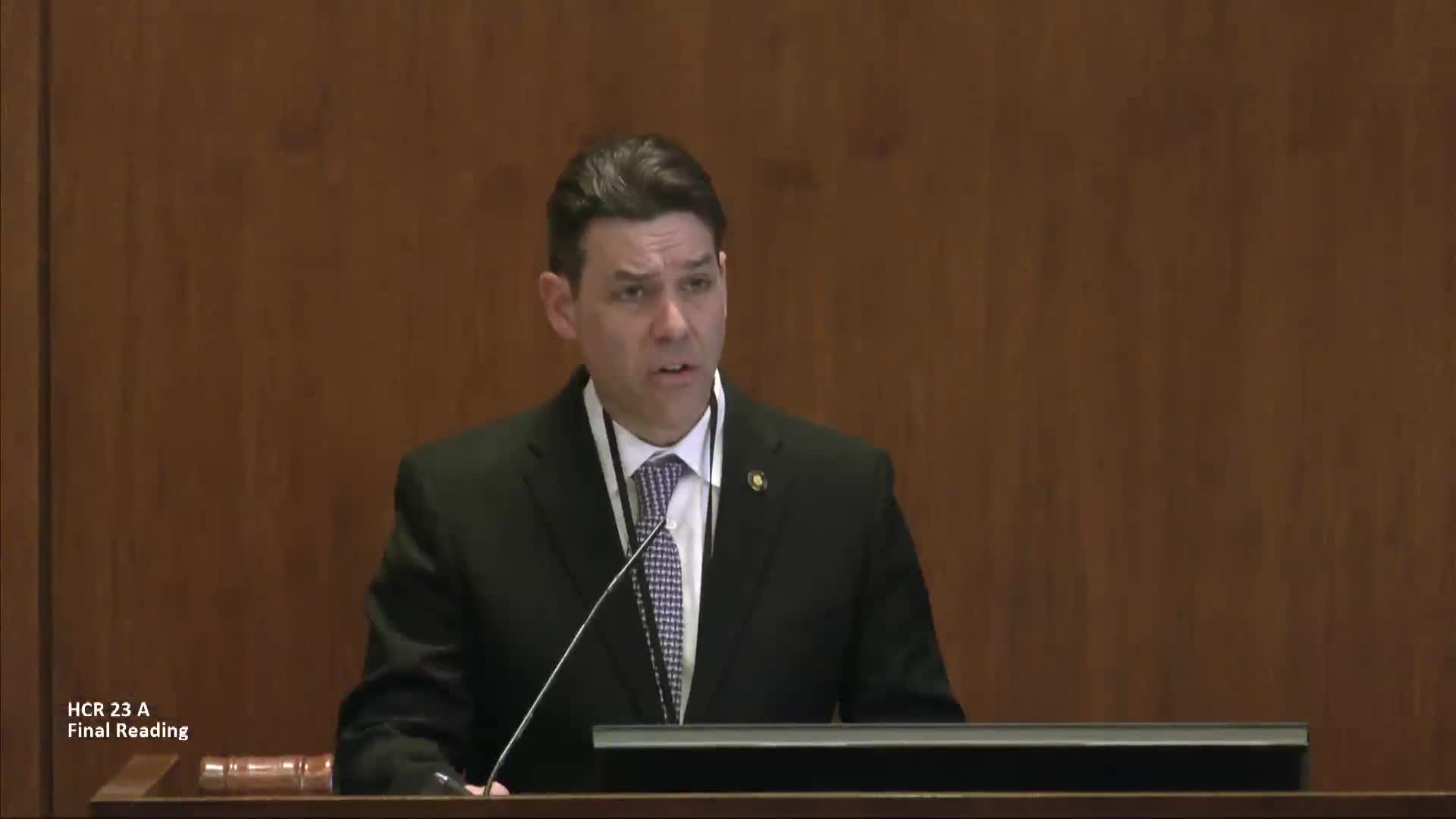Article not found
This article is no longer available. But don't worry—we've gathered other articles that discuss the same topic.

Senate suspends constitutional reading requirement, fast-tracks two resolutions

Senate adopts resolution honoring Oregon civilians who served on Wake Island in WWII

Senate adopts resolution declaring May 2025 Ehlers-Danlos awareness month

